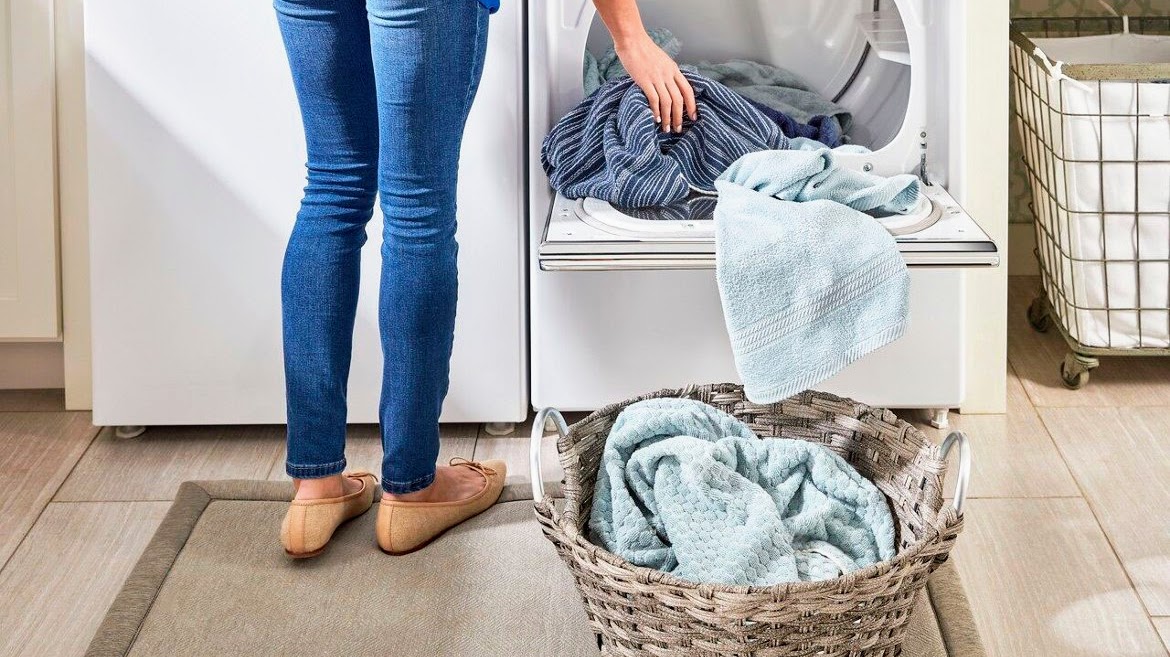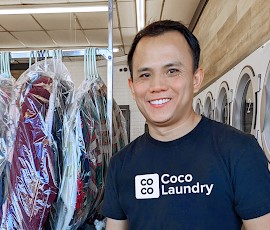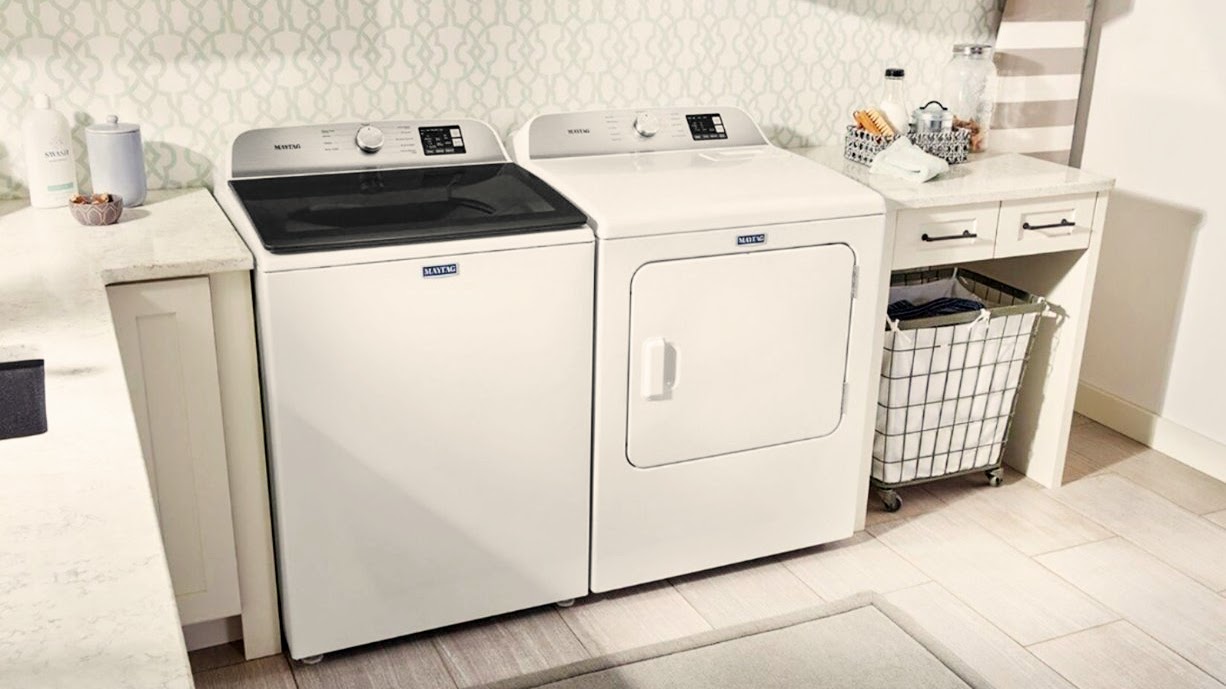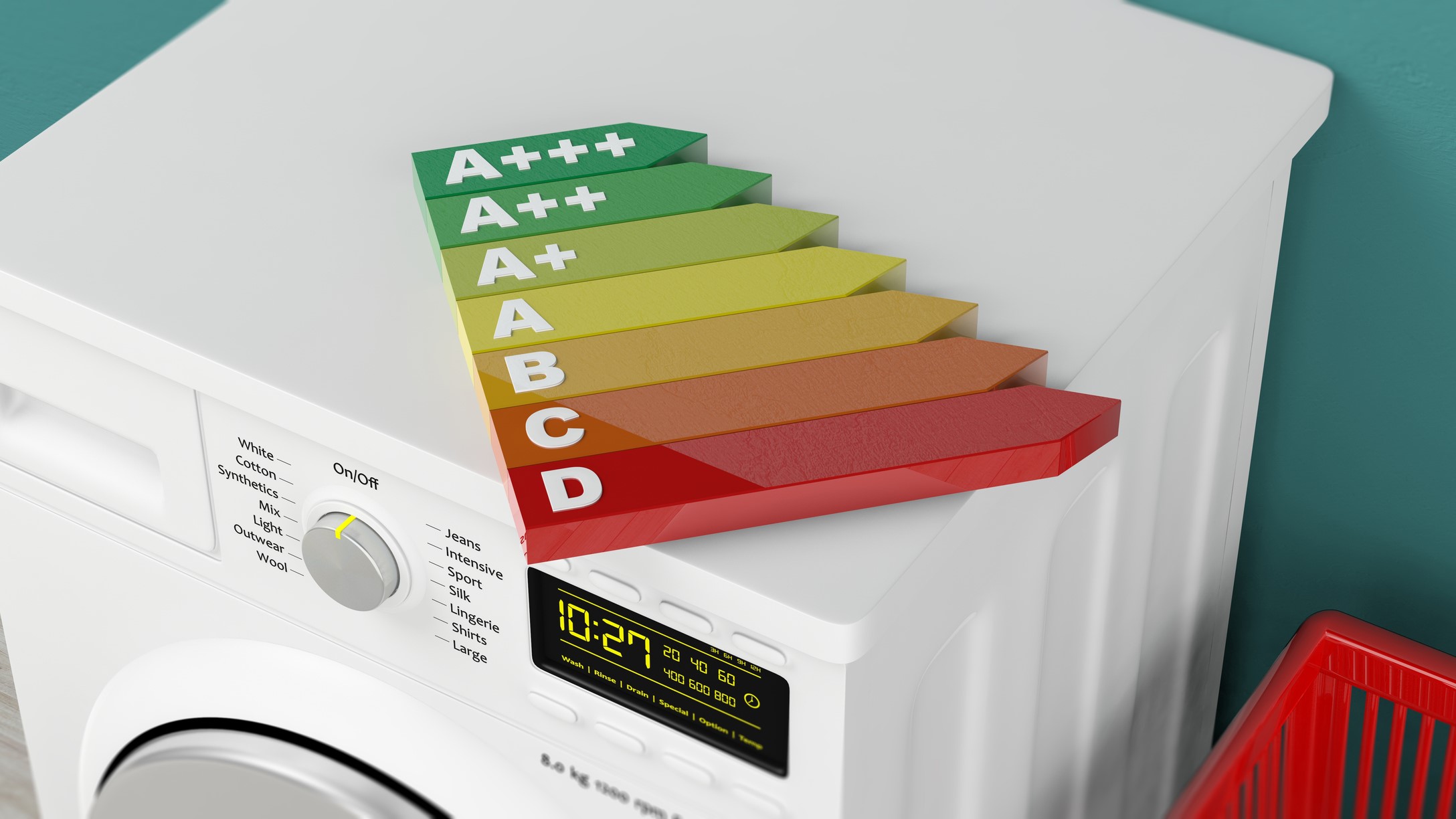How to choose a new dryer—with help from the experts
The ultimate guide to getting the right dryer for your household

Replacing your old dryer? You may be astounded at how far this dependable household appliance has come in recent years! These days, dryers boast all sorts of advanced features, from energy-efficient settings to smart tech features. They can even integrate with voice assistants like Alexa or Google Assistant. These innovations
Smart features such as notifications direct to your phone and remote start and stop can help you handle your laundry needs, even if you're not at home, making life more convenient. Energy-saving settings can cut your household bills and give you peace of mind that you're doing your best for the environment, too.
However, choosing the best dryer can feel daunting because there are so many available options and innovations. Your budget will be important too, as the lower you go, the more you'll need to consider which features are important to your household and which ones you can do without. I’ve spoken to a couple of laundry experts to get their insight and advice on what you should look for in your new dryer, from choosing the right warranty to finding the right capacity for your household.
How to choose a dryer
1. Buy the best you can afford
Whatever your budget, it's a good idea to go for the best you can afford in your price bracket. This is because the long-term cost savings will outweigh the initial upfront cost. Higher-end dryers are usually more energy efficient, saving money on your utility bills. ENERGY Star-certified dryers, such as this LG 7.4 Cu. Ft. Vented SMART Stackable Electric Dryer on Home Depot, have simple controls and energy-efficient programs and cycles to get your laundry dry while still being a budget-friendly option from just $400.
You'll probably find that investing in a higher-end dryer in your range means it lasts longer, is more durable and is easier to find spare parts for, should there be any problems in the future. Warranty and customer support are likely to be better too.
I spoke to Ken Doty, COO and Cleaning Expert at The Maids, to find out more. "When deciding on a make and model, it's imperative you find a good balance between quality and affordability," explains Ken. "Cheaper options won't hurt your wallet as much at the outset, but these can come with long-term repair issues that will end up draining your money to the point where the cost now matches the difference between cheaper and more expensive models. It's important to think long- and short-term when shopping for a new dryer."
Doty's advice is to seek the best value within your budget by balancing essential features, capacity, and energy efficiency. Remember that certain premium features, such as Wi-Fi connectivity and vibration reduction technology, may be beyond your reach, depending on how much you're willing to spend.
Sign up to receive the latest news, reviews, buying guides and deals direct to your inbox

Ken Doty joined The Maids International in July 2013 as Vice President of Business Intelligence and was promoted to Chief Information Officer in February 2020. He is experienced in business intelligence with over 20 years of experience in consulting and information technology. He loves talking shop with other cleaning service professionals, and offering cleaning tips to anyone who asks!
2. How much capacity do you need?
For effective drying, a dryer's capacity should at least match the capacity of your washer. I spoke to laundry expert Ocean Van, owner of Coco Laundry in Long Beach, California, to learn more. Van suggests ensuring your "new dryer has approximately 1.5 times the cubic footage of your washer to effectively accommodate the laundry from each wash cycle.”
Bigger households will need larger capacities, but do consider your washing habits, too. For example, you may have a smaller household, but you may prefer to run a couple of loads of laundry in a smaller washer before drying them together in a larger dryer.
Remember to consider common widths and heights when measuring the space available in your laundry room, kitchen or basement. Standard dryer widths are usually 27–30 inches, with 24 inches common for compact models. When selecting a top-load dryer, especially if you're installing it under cabinetry, make sure you have enough clearance for the door to open fully and comfortably.

Ocean Van is owner of Coco Laundry, a laundry service provider in Long Beach, CA. He has years of experience in making clothes, garments and linen smell good, as requested by both residential and commercial (especially hospitality) customers.
3. Opt for the best warranty you can afford
Warranties are crucial when selecting a new dryer because they protect your investment by covering repair costs and potential issues that may arise over time.
As Doty explains, "Warranties are all about cost and coverage. One year warranties are usually standard, but some brands can offer longer coverage of 5+ years or even lifetime warranties. Lifetime warranties are definitely appealing and provide a lot of value, but will almost always come with a higher upfront price. However, the peace of mind that comes with lifetime protection is well worth the cost as a long-term investment. If you have the budget, taking the longer coverage is always recommended."
- Ensure the dryer comes with at least a 1-year warranty covering parts and labor.
- Investigate the availability of extended warranties and determine if they offer good value.
- Research the manufacturer's reputation for honoring warranties and providing reliable customer support.
- Consider whether local repair services are accessible for the brand you select.

4. Which Smart features will make your life easier?
Some of the very best dryers come packed with Smart features that make doing your laundry super convenient, while many mid-range and affordable models are starting to offer premium features, too. Consider, for example, the Maytag MED7230HW 7.4 Cu. Ft. Smart Electric Dryer ($799), a mid-range model that can be connected to your WiFi so that you can start, stop, and manage your laundry when you’re away from home and assign tasks to other household members. It's even compatible with Google Assistant or Alexa-enabled devices.
While budget and mid-range appliances may not include every Smart feature, it's a good idea to prioritize the most important features for your own laundry routine. From sensor technology that stops cycles once clothes reach optimal dryness to wrinkle control options that keep clothes tumbling after the cycle ends to prevent creases, pick what works best for you and helps you streamline your laundry process. Here are some great dryer features that can make life easier:
- Drying cycles: Look for a variety of cycles to handle different fabric types or load preferences. Some dryers now offer steam cycles that help reduce wrinkles and refresh clothes without the need to wash them first.
- Notifications direct to your phone: Some dryers let you know exactly when your laundry is dry so you can remove clothes and avoid wrinkles, while others can give you maintenance alerts on when to change the lint filter or if there's a problem.
- Temperature controls: Adjustable drying temperatures allow for better fabric care.
- Spin speed: Higher spin speeds can reduce your drying time.
- Remote start and stop: Set the dryer to start at a convenient time so that it will be ready for you once you get home from work or run at night to save on utility bills.
- Voice control: Works with your home voice assistant to make life easier.
5. What about energy efficiency?
If you want to be more energy efficient and save money on your utility bills, consider a heat pump dryer, which uses significantly less energy than a condenser dryer.
"The importance of energy efficiency cannot be overstated, both for environmental reasons and for long-term cost savings," says Doty. "ENERGY STAR-certified dryers use about 20% less energy than standard models. The energy efficiency of front-loading dryers tends to be better than that of top-loading dryers."

6. Look at user reviews
While user reviews give great insight into a dryer's performance, reliability, and quality of customer service offered by the brand, they are not the be-all and end-all, according to Doty.
"User reviews can absolutely help provide valuable information, but professional reviews are usually more objective and will provide a more thorough look at a model. If you are looking at user reviews, check for patterns of criticism that seem to be popping up in each review." This will help you root out any issues that may be a deal breaker for you, such as noise, vibration or poor customer service.
Buying Guides
Best washer dryer combos 2025: all-in-one solutions for your laundry needs, chosen by experts
Best hair dryers: Top-rated blow dryers for all budgets
Reviews
LG DLEX8600BE 7.3 Cu. Ft. Smart Electric Dryer review: over 24 high-tech drying programs
Asko T411VDW 5.1 cu. ft. Stackable Electric Dryer review: ideal for lighter loads
Revlon Perfect Heat Fast Dry Travel Styler review
To get reliable information, focus on feedback from verified buyers. Pay attention to comments about the dryer's reliability, performance, and drying efficiency. Consider both positive and negative reviews for a balanced view, and look for reviews from people with household sizes and laundry habits similar to yours for more relevant insights.
7. Vented or ventless?
Vented dryers have faster drying time, are generally less expensive to purchase and are very efficient at expelling hot air and moisture outside. However, they need to be installed near an external wall, which can put some buyers off.
On the other hand, ventless dryers can be installed anywhere and are more energy-efficient in the long term. However, they are more expensive upfront and could potentially mean longer drying times.
Choosing the right dryer can cut costs and time when doing your laundry. While the variety of options may seem overwhelming, focusing on your budget, capacity needs, and the features that are important to you can simplify the decision-making process.
By prioritizing energy efficiency, reliable warranties, and smart technology, you can find a dryer that meets your needs and stands the test of time.

Joanne Lewsley is a reputable freelance writer specializing in evidence-based health and lifestyle content. With a background in journalism and extensive experience working for known brands, Joanne rigorously tests and evaluates home gadgets. Her passion for writing is complemented by her love for the outdoors and live music.
